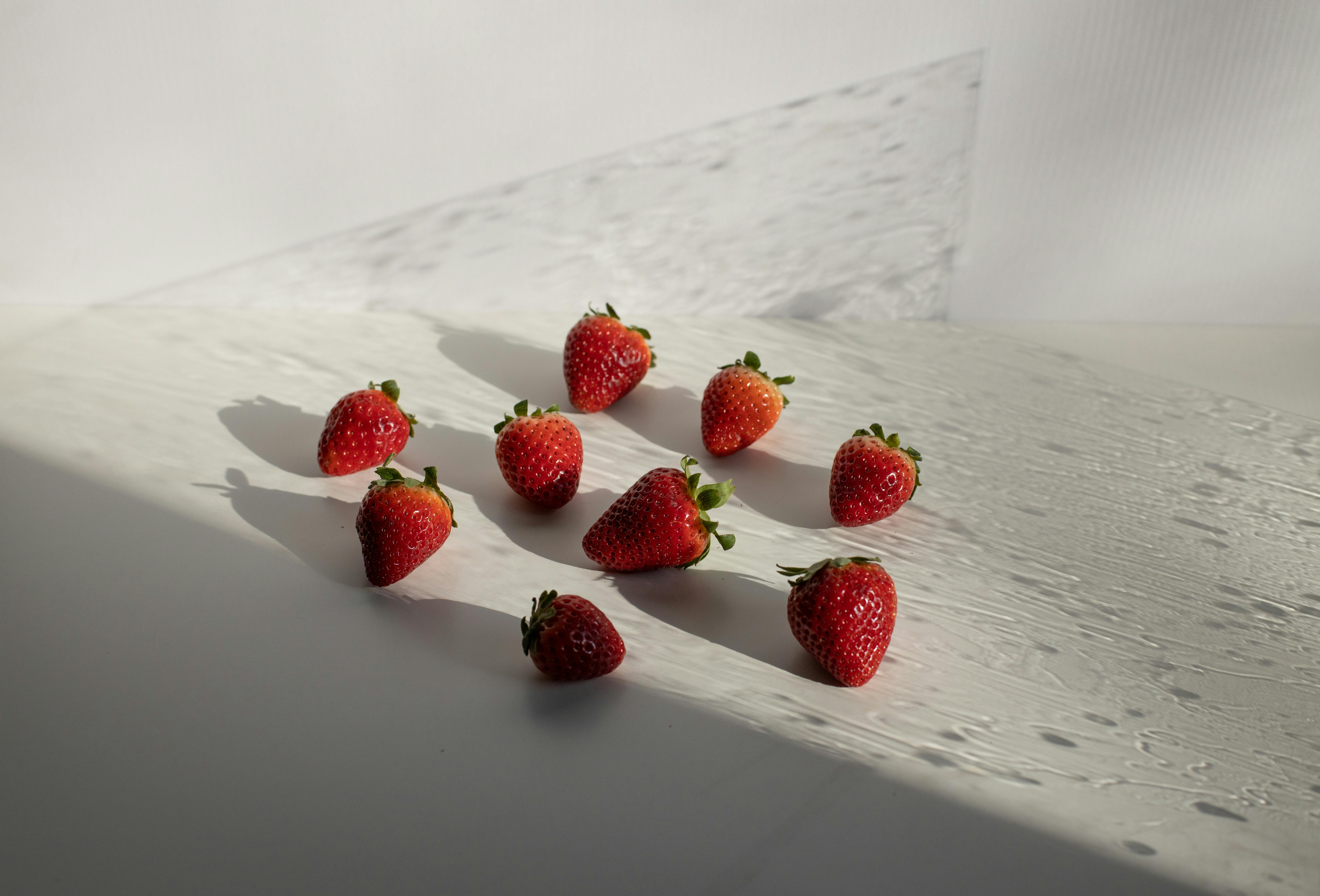Squirrels can wreak havoc on strawberry plants and cause damage to the plants. Fortunately, there are several methods for keeping squirrels away from your strawberry plants. This guide will explore the various ways to keep squirrels away from your strawberries and help protect them from damage.The problem of keeping squirrels away from strawberry plants can be addressed in several ways. One option is to construct a physical barrier around the plants, such as a fence or netting. This will help to keep out the squirrels and other animals that may be attracted to the fruit. Additionally, planting other varieties of berry plants nearby may help to distract the squirrels away from the strawberry plants. Finally, using natural repellents such as moth balls or predator urine may also work to deter squirrels from eating your strawberries.
Planting Strawberries in Raised Beds
Raised beds are an ideal location for growing strawberries, as they provide good drainage and warm soil. Furthermore, the soil in raised beds is easy to work with and amend, providing a perfect environment for strawberry plants. When planting strawberries in raised beds, it is important to prepare the bed beforehand by removing any weeds or rocks and adding organic matter such as compost or aged manure. This will help improve drainage and aerate the soil. Additionally, it is important to choose the right type of strawberry for your area – different varieties perform better in different climates.
When planting your strawberries, dig holes about 6-8 inches deep and wide enough to accommodate the roots of your plants. Place the plants in these holes with their roots spread outwards and fill with soil until all of the roots are covered. When all of your plants are planted, you should give them a thorough watering to help them get established.
Growing Strawberries in Raised Beds
Once you have planted your strawberry plants, regular maintenance is key to ensure a successful crop. Watering regularly is essential – aim to water your strawberries deeply 2-3 times per week during dry periods or when fruit begins to form (which will be discussed further later). Additionally, mulching around your strawberry plants will help conserve moisture and suppress weeds.
Fertilizing should also be done regularly throughout the growing season – this can be done with natural fertilizers such as compost or aged manure or with a balanced fertilizer specifically designed for strawberries. Lastly, pruning should be done twice a year – once in late winter/early spring before growth begins and then again after harvest when all of the fruit has been picked.
Once flowering has occurred (usually in late spring/early summer), it is important to protect your developing fruits from birds by covering them with bird netting or other barriers. Once flowers have turned into fruit, hand-pick them regularly when they are ripe – this will encourage more flowers and fruits to form throughout the season!
Installing Barriers to Keep Squirrels Away
Squirrels can be a nuisance for homeowners. They are known for raiding bird feeders, digging holes in yards, and stealing food from outdoor kitchens. Taking preventive measures such as installing barriers can help keep squirrels away from your property.
Barriers are designed to prevent squirrels from entering your yard or garden. There are several types of barriers available, including physical barriers, chemical repellents, and ultrasonic devices. Physical barriers are the most effective way to keep squirrels out of your yard. Fences or walls made of metal, wood, or wire mesh can be used to block off access points into your yard. Another option is to install a wildlife exclusion netting around the perimeter of your property.
Chemical repellents can also be used to deter squirrels from entering your property. These repellents contain ingredients that give off an unpleasant smell or taste that makes the area undesirable to the squirrels. Many formulations contain natural ingredients like garlic and peppermint oil that are safe for people and pets but act as an unpleasant deterrent for squirrels.
Ultrasonic devices emit high frequency sound waves that humans cannot hear but will scare away animals like squirrels when they enter the area. These sound waves can be heard up to 30 feet away and will cause animals to flee in fear if they come too close to your property.
Installing any of these types of barriers is relatively easy and does not require any special tools or expertise. If you’re looking for a way to keep squirrels away from your home or garden, installing one of these types of barriers could be the solution you’ve been looking for!
Covering Strawberry Plants with Netting
Strawberries are a popular fruit that can be grown in a backyard garden or in a larger field. Protecting the strawberries from birds and other animals is an important step in ensuring a healthy crop. One way of protecting the plants is to cover them with netting. The netting provides a barrier between the strawberry plants and any potential predators, allowing the strawberries to grow without being disturbed.
Netting is available in various sizes and shapes, so it should be easy to find something that fits your needs. When selecting netting, look for one that is made of durable material such as polyethylene or nylon, as this will ensure that it will last longer. Make sure the holes in the netting are small enough to keep out birds and other animals.
Once you have chosen the right type of netting, you can begin covering your strawberry plants. Start by securing one end of the netting around a stake or other support structure, then slowly unroll it over your plants. Secure the opposite end as well to ensure that it does not blow away in strong winds or heavy rain. If necessary, use additional stakes or supports to hold the netting securely in place over large areas.
Make sure that all parts of your strawberry plants are covered by the netting for maximum protection. If possible, use another layer of fine mesh underneath for extra protection against small animals like mice or rats. You may also want to consider adding some type of cover over top of the netting during cold winter months to protect your strawberry plants from frost damage.
Covering your strawberry plants with netting is an effective way to keep birds and other animals away from them while still allowing sunlight and water to reach them easily. With proper installation and maintenance, you can enjoy a bountiful harvest without worrying about predators ruining your hard work!
Placing Pesticides Around Strawberry Plants
When it comes to protecting your strawberry plants from pests, one of the most effective methods is to place pesticides around them. Pesticides can be applied in a number of ways, such as liquid or granular, and should be used according to the instructions on the label. Before applying pesticides, it is important to identify which pests are attacking your plants and choose the appropriate pesticide for that particular pest. Applying pesticides at the right time is also important; some pests require more frequent applications than others.
When placing pesticides around your strawberry plants, it is important to ensure that you are using the correct amount and that you are not over-applying them. Over-application can cause damage to the plant or create an unsafe environment for humans and other animals. Additionally, it is important to place pesticides in areas where they will not come into contact with people or other animals, such as near wells or waterways.
It is also important to take safety precautions when handling and applying pesticides. Wear protective clothing such as overalls, gloves, and a face mask when dealing with these chemicals. Also, always read all instructions on the pesticide label before use and follow all safety guidelines. Finally, store any unused pesticide in its original container in a safe place away from children and pets.
By following these tips when placing pesticides around your strawberry plants, you can ensure that they are protected from pests while minimizing any risk of harm to humans or animals in your area.

Repellents You Can Use to Deter Squirrels
Deterring squirrels from your property can be a challenge. Fortunately, there are a variety of repellents available that can help you keep squirrels away. These repellents work by emitting strong odors that are unpleasant to squirrels, but safe for humans and pets. By using these repellents strategically, you can make your yard and garden less attractive to unwanted squirrel visitors.
One of the most popular types of repellent for squirrels is liquid ammonia. This is available in many hardware stores and is relatively inexpensive. The smell of ammonia is strong and unpleasant to most animals, including squirrels. To use this repellent, simply mix it with water in a spray bottle and spray it around the perimeter of your property. Reapply every few weeks for best results.
Another effective repellent for squirrels is peppermint oil. This natural oil has a strong scent that many animals find unpleasant, including squirrels. To use this method, simply mix some peppermint oil with water in a spray bottle and apply liberally around the area you want to protect from squirrels. The smell will dissipate over time, but reapplying every few weeks will help keep the area clear of unwanted visitors.
If you prefer to use an electronic deterrent device, there are several types available on the market today that emit ultrasonic sound waves or flashing lights that are designed to scare away wild animals such as squirrels. These devices are typically battery-operated and should be placed near areas where you have seen signs of activity from squirrels. While these devices may not be 100% effective on their own, they can be an effective tool when used in conjunction with other deterrent methods such as liquid ammonia or peppermint oil sprays.
By using one or more of these repellents strategically around your property, you can effectively deter unwanted visitors such as squirrels without causing any harm to them or yourself. Keep in mind that while these methods may not eliminate all nuisance wildlife encounters completely, they can help reduce them significantly over time if used consistently and correctly
Setting Up Live Traps For Squirrels
Live traps are a great way to humanely remove squirrels from your property. When trapping squirrels, it’s important to be aware of the laws in your state or municipality. Some states require that you obtain a permit before trapping squirrels, so make sure you are aware of the regulations in your area. Once you have permission to trap, follow these steps to ensure a successful capture.
Start by finding an appropriate location to set up the trap. If possible, look for areas where the squirrels have been spotted and place the trap there. Make sure that the area is free from any obstructions and away from noisy or busy areas that could scare away any potential captures.
Once you have chosen a spot, prepare the trap with bait that is attractive to squirrels such as nuts, fruits, or peanut butter. Place the bait inside the trap and make sure it is secure so it won’t be accessible from outside.
Closely monitor the trap for any activity and check it regularly to make sure it isn’t damaged or has been tampered with by other animals or people. When you find a trapped squirrel, handle it carefully and release it in an appropriate area far away from your home or yard.
If done correctly, live trapping can be an effective way to humanely remove pesky squirrels from your property without harming them in any way. Make sure you follow all regulations in your area before setting up live traps for squirrels so that you don’t get into any trouble with local authorities.
Applying Smells and Sounds that Scare Away Squirrels
Squirrels are one of the most persistent pests in many yards. They are constantly on the lookout for food, and they can cause a lot of damage to plants and gardens. Fortunately, there are several methods that can be used to keep squirrels away from your property. One of the simplest ways to deter them is by using smells and sounds that scare away squirrels.
One smell that has been known to work well in keeping squirrels away is garlic. Garlic has a strong odor that squirrels find unpleasant, and it can be effective in deterring them from your garden or yard. You can either buy garlic bulbs and spread them around your property or make a garlic-based spray solution to apply directly onto plants or other surfaces.
Another smell that has proven effective in repelling squirrels is ammonia. Ammonia has a very pungent smell that most animals, including squirrels, find offensive. You can create an ammonia spray solution by mixing one part liquid ammonia with ten parts water. Spray the solution directly onto surfaces where you want to keep the squirrels away from and reapply when necessary.
In addition to smells, you can also use sound to scare away pesky squirrels. Ultrasonic devices emit sound waves at high frequencies which humans cannot hear but animals like squirrels can hear very well. These devices have proven effective in repelling both birds and mammals like rodents and rabbits; however, they should only be used as a last resort as they may also disturb other wildlife as well as pets in the area.
By using smells and sounds that scare away squirrels, you can keep your yard free of these pesky critters without having to resort to more drastic measures such as trapping or poison baits. Always remember to follow safety precautions when using any repellents or deterrent devices around your property; this will help ensure the safety of both yourself and all the animals living nearby!

Conclusion
The best way to keep squirrels away from strawberry plants is to make the area less attractive to them. Planting marigolds around the perimeter of the plants and using repellent sprays can be effective deterrents. As a last resort, setting up fencing or netting around your garden can help protect your berries from hungry squirrels. Keeping bird feeders away from the area and regularly checking for signs of damage can also help minimize the presence of squirrels in your garden.
By taking these steps, you can keep squirrels away from your strawberry plants and enjoy your harvest for season after season!



